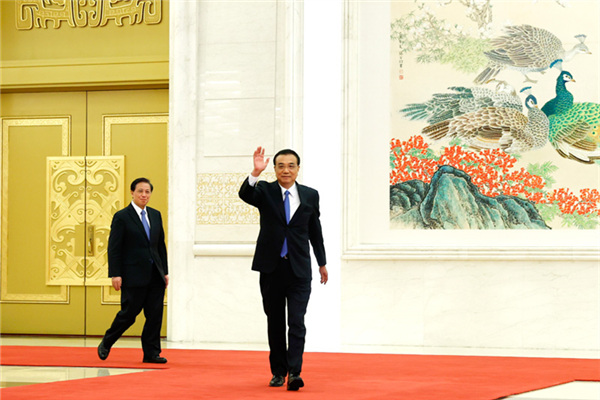
Premier Li Keqiang announced a slew of fiscal policies China will usher in to boost economic development against the backdrop of COVID-19 aftermath on May 28 when meeting the press.
Referring to a Reuters reporter's queries about China's mild fiscal measures, 4 percent of China's 2019 GDP as estimated, Premier Li said the Chinese government did not present a definite GDP growth target because of the unprecedented impact caused by the COVID-19 epidemic on the global economy, as the Chinese economy has been an integral part of the global economy for long.
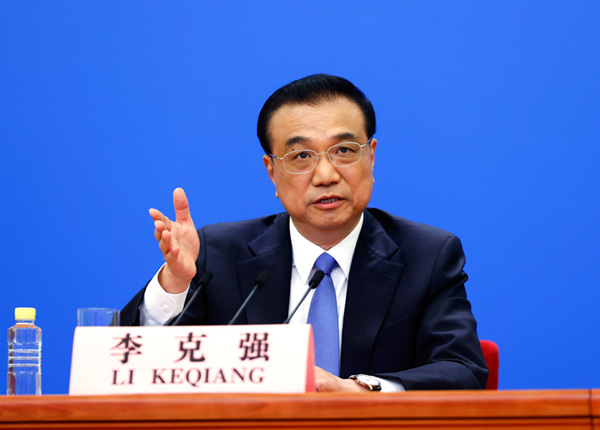
He added that China has already set a detailed target, namely, further efforts to uphold stable employment, basic welfare, market entities' interests, grain and energy safety, industrial chain stability, and grassroots-level administrative operation, which are directly related to GDP growth.
As long as the six areas see improvements, China's economy will attain growth this year at a stable pace, Premier Li said.
Economic growth is fairly important, but the Chinese government has to make sure that the economic growth can have a direct effect on people's life, which makes it possible for the economy to achieve a high-quality growth.
Development is, undoubtedly, key to all the problems China is faced with, the Premier said.
Indiscriminate strong fiscal stimulus, Premier Li said, is generally unacceptable, and the fiscal policy-making has to hinge upon the current circumstances, which explains why the Chinese government took targeted and innovative measures this time.
Multifaceted measures to ensure sufficient capital flow
While the COVID-19 was spreading, China implemented an array of policies. Based on the previous experience, the government will continue to introduce a package of powerful measures, including newly added deficits and tailor-made epidemic-prevention bonds totaling 2 trillion yuan ($279.71 billion), Premier Li said.
In addition, the government will help cut costs for enterprises by exempting and reducing social insurance charges, using the balance of unemployment insurance, and pushing State-owned banks to give up part of their profits.
The Chinese government will guide the funds generated from the above-mentioned fiscal action in safeguarding employment, welfare, and market entities, in an effort to increase residents' incomes.
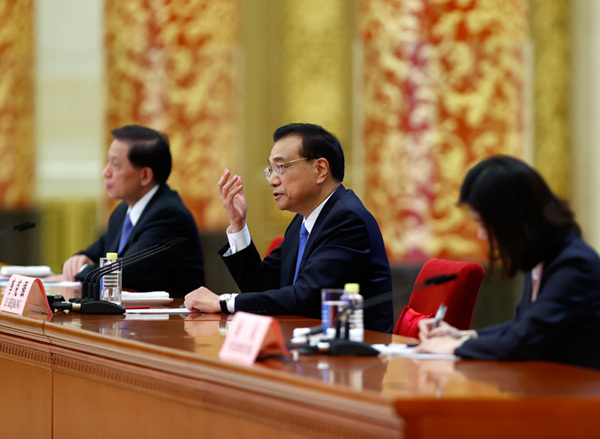
There's still a political leeway for new policies to come out in a timely manner, be it related to finance, banking, or social insurance, in accordance with any changes in the economy or other areas, in order to ensure stable economic development, which is also a contribution to the global economic resurrection, Premier Li said.
To cross the river by feeling the stones
When asked by a CCTV reporter what measures the government should take to ensure the funds generated can be pragmatically conducive to enterprises, the Premier said that policy-making will take an innovative approach.
The funds will be used to help enterprises conquer difficulties and bring out the vitality of market entities, in a bid to secure employment and people's well-being, and make sure that residents have enough disposable income to boost consumption, which can be interpreted as a mark-oriented approach.
The funds utilized on people can usher in new capital flows to cultivate tax sources and realize financial sustainability.
With consumption rising to become a new major economic driver and small and medium enterprises providing 90 percent positions, around 70 percent of the funds generated from the fiscal action taken by the government will subsidize people's income in an effort to beef up consumption, the Premier said.
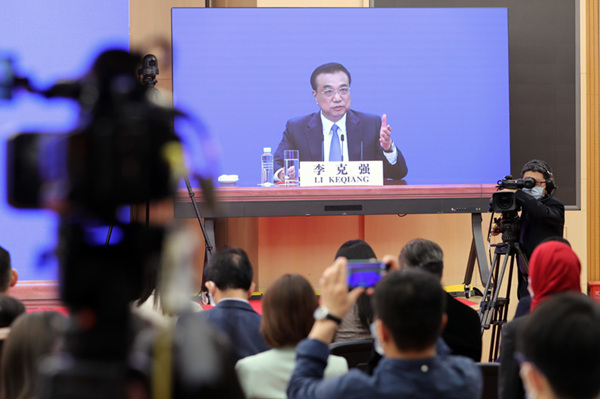
Innovation, in another way, means that fiscal funds will go to regions, grassroots level governments, and people's life directly.
In addition, a special transfer payment mechanism should be established to make sure all the funds will be used on SMEs, bearers of social insurance, basic living allowance, and annuity, the unemployed, and people living in abject poverty, with a real-name system in operation.
China to stay a stickler for sustainable economic development
The Premier said the government should take a two-pronged approach to make the special fiscal measures taken during COVID-19 epidemic sustainable.
Government expenditure should see a reduction, Premier Li said, adding the government should tighten the belt to allocate funds to subsidize grass-roots enterprises and people's life, with non-pressing expenditure seeing nearly a 50 percent cut.
Profitable project investments should see further expansion as well. Hence the government issued regional government special bonds valued at 1.6 trillion yuan, with some national bonds worth 2 trillion yuan, which altogether represents 20 percent to 30 percent of the new multifaceted fiscal policies.
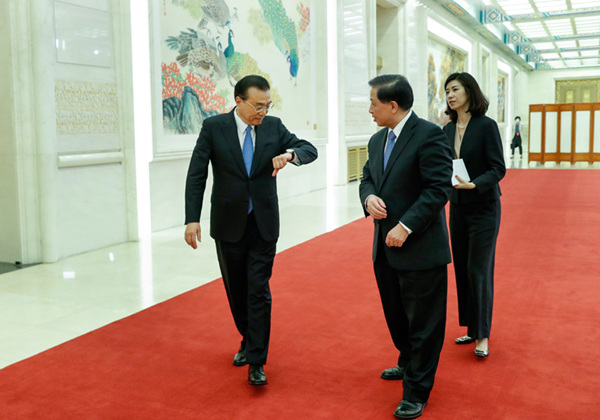
The major projects calling for investments include new types of infrastructure, new-style urbanization, and significant projects concerning national economy and the people's livelihood. And the investment will be fulfilled in an innovative way to leverage private capital flows, Premier Li noted.